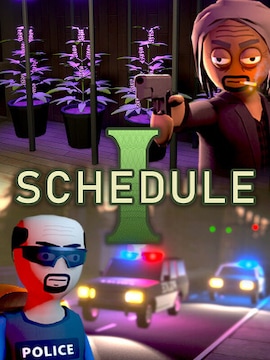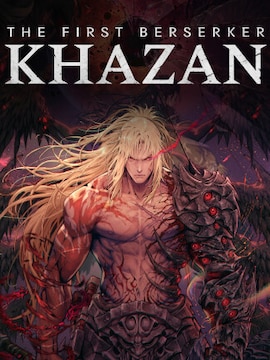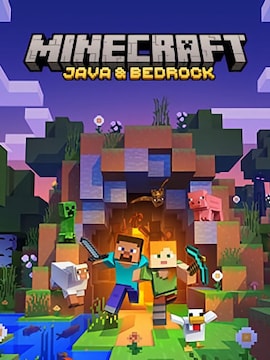RPG, which stands for Role-Playing Games, is a genre whose origins date back to the 1970s.
Initially, the gameplay relied solely on storytelling and the players’ imagination, who together created a fantastical world and characters, constructing unique scenarios. A turning point was the iconic Dungeons & Dragons system, created in 1974. Soon after, the first computer RPGs started to appear – initially text-based, but eventually evolving to include graphics as technology advanced.
It cannot be denied that RPGs and Dungeons & Dragons itself have had a significant impact on modern popular culture – not only providing the foundation for creating dozens of incredible computer games, but also being associated with films and TV shows featuring children and teenagers from the 1970s and 80s. Today, however, let’s have a closer look at the computer gaming legacy of RPGs. What are the most popular and famous RPGs? Let’s dive in!
- The Golden Era of RPGs
- 1. Final Fantasy Series
- 2. The Elder Scrolls Series
- 3. Dragon Quest Series
- 4. The Witcher Series
- 5. Mass Effect Series
- 6. Chrono Trigger
- 7. Baldur’s Gate Series
- 8. Pokémon Series
- 9. Persona Series
- 10. Dark Souls Series
- RPGs: A Global Perspective
- Conclusion
- Further Reading and Resources
The Golden Era of RPGs
The 1990s are known as the “Golden Era of RPGs” due to rapid technological progress and the boom in advanced 32-bit consoles that replaced their 16-bit counterparts. The new quality of graphics, colors, and 3D technology led to the flourishing of the gaming market, dominated at that time by RPG and adventure productions. This was the time when iconic franchises like Baldur’s Gate, Fallout, and The Elder Scrolls were born.
However, we must not forget the previous decade. The 1980s, especially their second half, also featured exceptional RPG productions for computers and consoles (Final Fantasy, Ultima, Wizardry, and Wasteland), which started unforgettable series that continue to this day.
So, what does the list of the 10 most popular and most unforgettable RPGs that shaped our generation look like? Let’s begin!
1. Final Fantasy Series
Final Fantasy is one of the most recognizable franchises worldwide, representing the jRPG genre. The first title in the series was created in 1987 for the NES console by the Japanese studio Square (now Square Enix).
Although each game in the series has a different world and features different characters’ stories, they share common elements such as character names and plot elements where a group of heroes fights against evil. The most popular character and, in a sense, the face of the series is the unforgettable Cloud Strife, as well as the cute Chocobo birds, mainly used as a means of transportation in the FF world.
Currently, there are 15 main parts of Final Fantasy and dozens of spin-offs. It left its mark not only on the RPG genre, inspiring hundreds of titles created in later years, but also on popular culture as a whole.
2. The Elder Scrolls Series
The series, created in 1994 by the American studio Bethesda Entertainment, is one of the best-known RPG franchises ever. It’s renowned for its expansive open worlds, immersive stories, and player freedom. The series gained recognition primarily through its second installment, TES II: Daggerfall, which offered an enormous, expansive world (crossing the map from one end to the other takes 2 weeks of real-time!). This title showed and proved that a large, surprise-filled, open world can be created, and game plots don’t have to be linear.
Daggerfall was succeeded by the immensely popular and, interestingly, still played Morrowind, which allows for extensive exploration and was followed by Oblivion on a new engine. The most recent game in the series, as of now, is the outstanding Skyrim, which has enjoyed lasting popularity for 12 years and is one of the most modded games. In 2014, ZeniMax Online Studios created The Elder Scrolls Online – an MMO game set in the TES (Tamriel) world, although not a direct continuation of the series.
3. Dragon Quest Series
Dragon Quest (often confused with the pen-and-paper RPG DragonQuest), created in 1986 by Chunsoft, is another influential RPG franchise, currently consisting of 11 titles and several spin-offs. This game became a pop culture phenomenon in Japan, inspiring novels, manga, and anime series. The first game literally built the template that other creators around the world would follow.
The signature gameplay mechanics of Dragon Quest, such as the top-down view, character-building, and the mechanics of numerous side quests, have served as inspiration and have become almost synonymous with the RPG genre. The influences can be observed in many jRPG and WRPG games to this day.
4. The Witcher Series
A noteworthy addition to our list is The Witcher series, initiated by CD Projekt RED in 2007. This franchise was based on outstanding fantasy novels by Polish author Andrzej Sapkowski, describing the adventures of Geralt of Rivia. Initially, the game was popular mainly in the writer’s (and the studio’s) homeland and a few neighboring countries. The second game in the series gained players’ hearts beyond Poland, but the third installment, Wild Hunt, brought the series enormous international success, contributing to the franchise’s growing popularity.
Beyond RPG and adventure elements, the series has a highly developed moral system – even the tiniest, seemingly insignificant decision can have significant positive or negative consequences in the future. This system is also based on the literary source – Geralt from the books grapples with various difficult decisions throughout the saga, the consequences of which he must bear. This is perfectly summed up by the quote: “If I’m to choose between one evil and another, I’d rather not choose at all.”
5. Mass Effect Series
The Mass Effect series is a relatively new series, developed by BioWare since 2007. This game is not the defining production of the genre nor the precursor of sci-fi shooter RPGs, at first glance… However, it had something that attracted players and brought a breakthrough to the entire genre – the way it tells stories, the depth of the plot and characters, the elaborate possibilities for interacting with NPCs, and romantic subplots. This captivated players and inspired other creators.
In Mass Effect, you can explore space and discover planets, communicate and build relationships with various characters to get to know them better. NPCs here are not just an “add-on” to the story, but a fully-fledged part of it, “pieces of the puzzle” that contribute to the gaming experience. The depth of the universe and the memorable characters in newer games are attributed to the Mass Effect series!
6. Chrono Trigger
Chrono Trigger is another game created by the Japanese Square studio, which began the Chrono series in 1995. Although the game is a typical representative of the jRPG genre, featuring a top-down view and charming pixel graphics, many players consider this title a “masterpiece” due to its unique approach to storytelling. The game’s plot is intricate, involving time travel, moral choices, complex characters with their own personalities, and a plenty of interesting and engaging side quests.
Chrono Trigger is on the list of best-selling Square Enix games and still enjoys considerable popularity almost 30 years after its release. Its successors are the subsequent parts of the series, as well as the short anime “Dimensional Adventure Numa Monjar.” The game has also served as inspiration for many subsequent titles, such as Sea of Stars, Chained Echoes, and even the 10th instalment of the Final Fantasy series or Persona 5.
7. Baldur’s Gate Series
Although Western RPGs were being developed since the early 1980s, it’s easy to notice that initially, Eastern productions led the way in this genre (on the global market). The situation started to change at the end of the 1980s and the beginning of the 1990s. However, the production that brought particular popularity to the genre and won the hearts of players worldwide was Baldur’s Gate, produced by BioWare in 1998.
Many video RPGs drew (and still draw) inspiration from Dungeons & Dragons and the Forgotten Realms world, where many D&D campaigns take place. However, the Baldur’s Gate series is a direct transition of the pen-and-paper RPG into the digital realm. Elaborate branching narratives, character development, engaging quests, and a beautiful (familiar to many former D&D players) world literally became a GATE into the RPG genre for many players. Baldur’s Gate also opened the door to a series that currently has three games (the newest BG is from 2023) and also served as inspiration for many later games.
8. Pokémon Series
There is probably no person in the world who wouldn’t recognize Pokémon, led by the cute yellow Pikachu. The franchise’s TV show, movies, and games are a global phenomenon and an integral part of modern pop culture. However, it all started in 1996 when Game Freak, together with Nintendo, released the game Pokémon Red and Green in Japan. Two years later, an improved version called Pokémon Red and Blue was released on the global market, and players still play it today!
The fresh approach to the genre, exciting battles between trained creatures, an engaging storyline, and the ability to trade and interact with other players led to a breakthrough that enchanted players for many years and gave rise to the “Mon RPGs” subgenre. Over time, mechanics were improved, graphics enhanced, new gameplay forms were attempted, and even the fusion of video games with real-world activities was explored. However, the games always returned to their roots.
9. Persona Series
The Persona game series is a spin-off and part of another game series – Megami Tensei, which, unlike its spin-off, did not achieve such success worldwide. A fresh approach to the genre and the blending of traditional RPG elements with life simulation brought recognition and sales success to the Persona series, created by Atlus in 1996.
Persona is an interesting game that combines RPG, simulation, strategy, and dungeon crawling elements with a turn-based combat system and a modern setting. A characteristic element of the series is the use of “Personas,” which are physical manifestations of a person’s psyche and subconscious used for battle.
The game achieved significant success in Japan and beyond, leading to the creation of five popular parts, as well as several spin-offs, manga series, anime adaptations, TV series, magazines, and even theatrical performances!
10. Dark Souls Series
As you can see, the RPG genre continues to evolve, and creators are constantly blending different genres, enriching games with unique elements and experimenting even with the narrative layer, a key element of the genre. An example of such experimentation is the Dark Souls series started by FromSoftware in 2011. Its minimalistic storytelling and high level of challenge captured players’ hearts, and it gave rise to a new subgenre of RPGs known as “Soulslikes,” named after the first game.
Challenging battles, rich lore, and interconnected world design led to the creation of a series consisting of four games and inspired other works by the studio, such as Bloodborne or Elden Ring. Players embraced the idea that games (which had been created for relaxation and entertainment for many years, and had thus become easier) could once again be challenging, requiring great skill, resourcefulness, and creativity.
RPGs: A Global Perspective
Looking at the mentioned games and many others in the RPG genre, it’s easy to see the differences between Eastern and Western approaches to RPG design.
Games created by Asian studios feature more epic, dynamic gameplay, intricate and multifaceted lore, and often combine futuristic, fantasy, and real-life elements. They also exhibit a significant anime-like graphic design. They show a strong influence from pioneering titles like Chrono Trigger or Final Fantasy, including in terms of character development. Heroes often form a group tasked with uncovering the world’s mysteries.
Western RPGs, on the other hand, tend to have a slower and deeper narrative, visually “calmer” worlds, and game protagonists who are often lone wolves around whom the story revolves. Western games also focus more on a faithful representation of real life.
However, it’s worth noting that with technological progress and the world becoming a global village, these differences are gradually fading.
Conclusion
We are certain that the titles chosen for our ranking have also seemed fairly obvious to you, and most likely, a significant majority of them looks familiar. This only confirms how much impact these series and titles have had on contemporary pop culture and gaming.
Each of the mentioned games influenced not only the development of its own series, but also countless other games and works of film or comics, creating timeless trends. In today’s times dominated by social media, the significant influence of some of these games (even those over 20 years old) is still apparent – in the form of memes or fan groups.
Further Reading and Resources
As mentioned earlier, in the case of Baldur’s Gate or The Witcher, some titles were inspired by their pen-and-paper and book predecessors. While not necessary to start gameplay or understand the in-game world, they can add depth and background to certain stories or characters, as well as offer interesting tidbits and references that fans will enjoy.
It’s worth delving into other media – reading books set in the same universes, watching films and TV shows related to the games, and even exploring old-school guides that often contain various interesting details and Easter eggs, allowing you to uncover the secrets of the RPG world.




